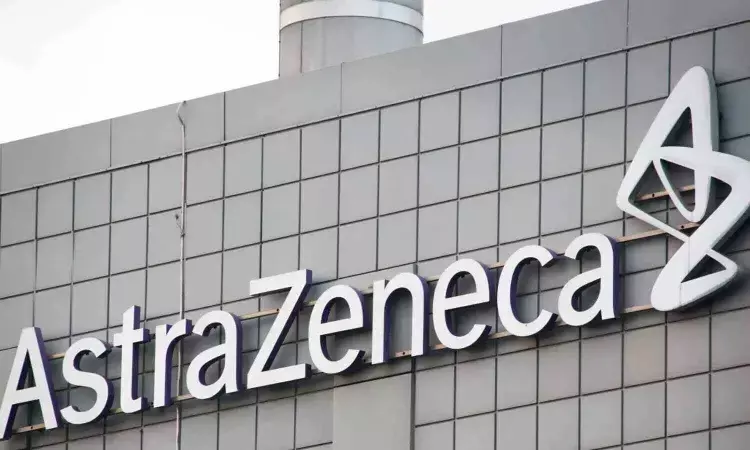- Home
- Medical news & Guidelines
- Anesthesiology
- Cardiology and CTVS
- Critical Care
- Dentistry
- Dermatology
- Diabetes and Endocrinology
- ENT
- Gastroenterology
- Medicine
- Nephrology
- Neurology
- Obstretics-Gynaecology
- Oncology
- Ophthalmology
- Orthopaedics
- Pediatrics-Neonatology
- Psychiatry
- Pulmonology
- Radiology
- Surgery
- Urology
- Laboratory Medicine
- Diet
- Nursing
- Paramedical
- Physiotherapy
- Health news
- Fact Check
- Bone Health Fact Check
- Brain Health Fact Check
- Cancer Related Fact Check
- Child Care Fact Check
- Dental and oral health fact check
- Diabetes and metabolic health fact check
- Diet and Nutrition Fact Check
- Eye and ENT Care Fact Check
- Fitness fact check
- Gut health fact check
- Heart health fact check
- Kidney health fact check
- Medical education fact check
- Men's health fact check
- Respiratory fact check
- Skin and hair care fact check
- Vaccine and Immunization fact check
- Women's health fact check
- AYUSH
- State News
- Andaman and Nicobar Islands
- Andhra Pradesh
- Arunachal Pradesh
- Assam
- Bihar
- Chandigarh
- Chattisgarh
- Dadra and Nagar Haveli
- Daman and Diu
- Delhi
- Goa
- Gujarat
- Haryana
- Himachal Pradesh
- Jammu & Kashmir
- Jharkhand
- Karnataka
- Kerala
- Ladakh
- Lakshadweep
- Madhya Pradesh
- Maharashtra
- Manipur
- Meghalaya
- Mizoram
- Nagaland
- Odisha
- Puducherry
- Punjab
- Rajasthan
- Sikkim
- Tamil Nadu
- Telangana
- Tripura
- Uttar Pradesh
- Uttrakhand
- West Bengal
- Medical Education
- Industry
AstraZeneca Fasenra approved in the EU for eosinophilic granulomatosis with polyangiitis

Cambridge: AstraZeneca has announced that Fasenra (benralizumab) has been approved in the European Union (EU) as an add-on treatment for adult patients with relapsing or refractory eosinophilic granulomatosis with polyangiitis (EGPA). EGPA is a rare, immune-mediated vasculitis that can result in damage to multiple organs, and without treatment, can be fatal.
The approval by the European Commission follows the positive opinion of the Committee for Medicinal Products for Human Use and was based on positive results from the MANDARA Phase III trial, published in The New England Journal of Medicine. MANDARA was the first head-to-head non-inferiority trial of biologics in patients with EGPA. Patients were randomised to receive either a single 30 mg subcutaneous injection of Fasenra, or three separate 100 mg subcutaneous injections of mepolizumab every four weeks.
In the trial, nearly 60% of Fasenra-treated patients achieved remission, which was comparable to mepolizumab-treated patients. Data also showed 41% of Fasenra-treated patients fully tapered off oral corticosteroids (OCS) (vs. 26% in the comparator arm (difference: 16%; 95% CI: 1,31)).
Bernhard Hellmich, Chair of the Department of Internal Medicine, Rheumatology, and Immunology at the Medius Klinik Kirchheim, Teaching Hospital of the University of Tübingen in Germany, Co-Director of the Vasculitis Center Tübingen-Kirchhei, and MANDARA Principal Investigator said, “People living with EGPA suffer debilitating symptoms, organ damage and even death. Today’s approval provides an important treatment option for people living with EGPA in the EU. By directly targeting and removing eosinophilic inflammation with benralizumab, I hope that we will see more patients achieve remission as well as a reduction in the reliance on oral corticosteroids, which can cause serious and long-term side effects.”
Ruud Dobber, Executive Vice President, BioPharmaceuticals Business Unit, AstraZeneca said: “We remain committed to helping patients with some of the hardest-to-treat diseases. Today’s approval of Fasenra, with its convenient, single-monthly injection is a positive step forward for patients with EGPA. Fasenra has been a well-established treatment for many years in thousands of people with severe eosinophilic asthma and we are pleased to now offer a much-needed treatment option for those living with EGPA in Europe.”
The safety and tolerability profile for Fasenra in the MANDARA trial was consistent with the known profile of the medicine.
Approximately half of patients with EGPA have adult-onset severe eosinophilic asthma (SEA) and often have sinus and nasal symptoms. Fasenra is only the second biologic approved to treat this disease.
Fasenra is currently approved as an add-on maintenance treatment for SEA in more than 80 countries, including the US, Japan, EU and China. It is also approved in children and adolescents ages 6 and above in the US and Japan. Fasenra was approved for EGPA in the US in September.
Read also: AstraZeneca gets CDSCO Panel nod to study Budesonide, Glycopyrronium and Formoterol Fumarate
Ruchika Sharma joined Medical Dialogue as an Correspondent for the Business Section in 2019. She covers all the updates in the Pharmaceutical field, Policy, Insurance, Business Healthcare, Medical News, Health News, Pharma News, Healthcare and Investment. She has completed her B.Com from Delhi University and then pursued postgraduation in M.Com. She can be contacted at editorial@medicaldialogues.in Contact no. 011-43720751
Dr Kamal Kant Kohli-MBBS, DTCD- a chest specialist with more than 30 years of practice and a flair for writing clinical articles, Dr Kamal Kant Kohli joined Medical Dialogues as a Chief Editor of Medical News. Besides writing articles, as an editor, he proofreads and verifies all the medical content published on Medical Dialogues including those coming from journals, studies,medical conferences,guidelines etc. Email: drkohli@medicaldialogues.in. Contact no. 011-43720751


